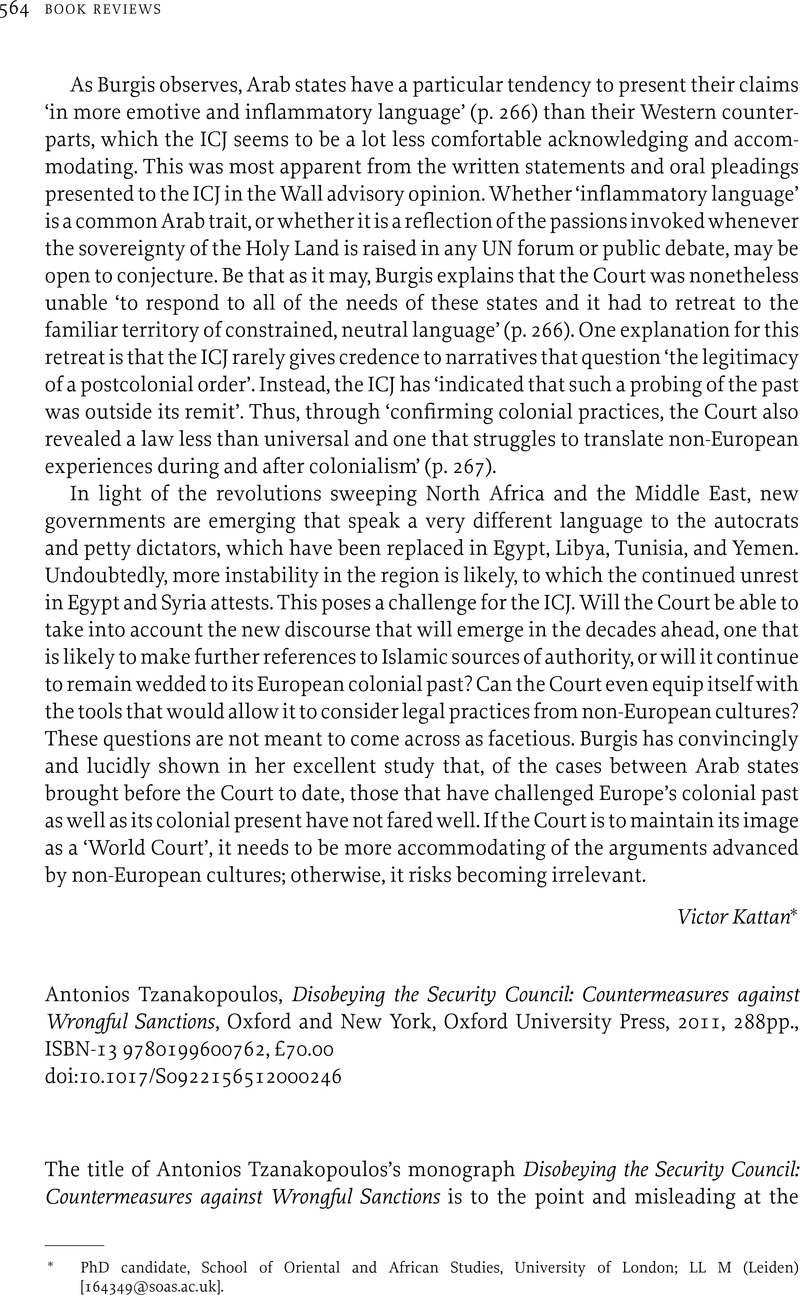No CrossRef data available.
Article contents
Antonios Tzanakopoulos, Disobeying the Security Council: Countermeasures against Wrongful Sanctions, Oxford and New York, Oxford University Press, 2011, 288pp., ISBN-13 9780199600762, £70.00
Published online by Cambridge University Press: 02 May 2012
Abstract

- Type
- BOOK REVIEWS
- Information
- Copyright
- Copyright © Foundation of the Leiden Journal of International Law 2012
References
1 See also A. Tzanakopoulos, ‘Disobeying the Security Council: Some Responses’, EJIL:Talk, 30 May 2011.
2 Higgins, R., ‘The Advisory Opinion on Namibia: Which UN Resolutions Are Binding under Article 25 of the Charter?’, (1972) 21 ICLQ 270CrossRefGoogle Scholar, at 279.
3 See p. 50: ‘As far as binding decisions are concerned, [Article 17 DARIO] is unnecessary, in that conduct of MS in the implementation of binding decisions which do not allow for discretion would either be attributable to the organization under Article [7] DARIO, if one were to accept the notion of normative control, or it would engage the derivative responsibility of the organization under Article [15] DARIO, since the Commission seems in this case to accept the notion of normative control.’
4 See p. 143: ‘In the context of S[ecurity] C[ouncil] wrongful conduct under Chapter VII, cessation will involve the “overturning” of an unlawful normative act – unlawful either because it was promulgated in violation of applicable international law, or because it necessitates implementing acts in violation of that law’ (emphasis added); p. 177: ‘disobedience violates the State's obligation to comply with a valid S[ecurity] C[ouncil] R[esolution] (under Article 25), but this is in response to the Council's unlawful behaviour in issuing the norm/resolution. It is thus a breach in response to a breach’ (emphasis in original).
5 For criticism based on this fact, see also M. Happold, ‘Some Remarks on Disobeying the Security Council’, EJIL:Talk, 27 May 2011.
6 See A. Tzanakopoulos, ‘Disobeying the Security Council: Some Responses’, EJIL:Talk, 30 May 2011 (emphasis in original).
7 Ibid.


